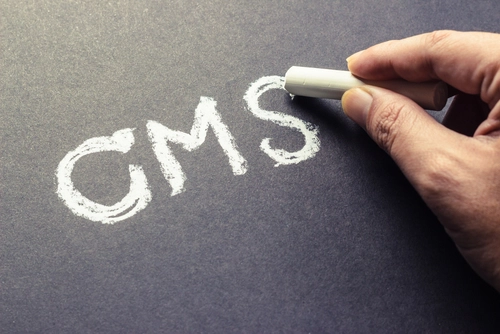
Plus: Ob-gyns, thoracic surgeons, chiropractors make the most mistakes on claims.
If your practice billed incorrectly 25 percent of the time, you'd be concerned, right? Ob-gyns take note--your specialty's error rate was 25.2 percent in 2010, CMS recently revealed. This and other revelations came to light in a recent series of data tables that the CERT committee released last month.
Background: Last fall, we told you that CMS made $34.3 billion in improper payments during 2010, according to the Comprehensive Error Rate Testing (CERT) results for that year"but at the time, CMS didn't publish specifics about which procedure codes and specialties produced the most errors. In May, however, CMS released the appendices to accompany the 2010 error statistics, and the Insider sifted through the tables to discover the most interesting facts contained in the document.
E/M Services Rack Up High Errors
CMS evaluated the top 20 Part B service types with the highest improper payment rates, and after chiropractic services (which had almost 44 percent of claims billed in error), E/M services topped the list. Initial hospital visits had a 28.2 percent error rate, followed by new patient office visits, which saw 24 percent of the visits billed incorrectly.
When it came to procedures, chemotherapy services had a high error rate, as did lab tests and emergency room visits.
What this means: As has always been the case, you must ensure that you meet all elements required of each E/M code before you report it. For new patients, this means meeting all three elements (history, exam, and medical decision-making) required of a particular code, whereas for established patients it typically means meeting at least two of the three components.
Neurosurgeons, CRNAs See Low Error Rates
The CERT report indicates that among the specialties, chiropractors have the highest error rate, at 43.9 percent, followed by thoracic surgeons at 32.2 percent, and both rheumatologists and ob-gyns, with error rates just above 25 percent.
On the lower end of the spectrum, some specialties billed a vast majority of their claims correctly, the CERT report suggests. Neurosurgeons only had a 2.8 percent error rate, and certified registered nurse anesthetists (CRNAs) had error rates of just 2.2 percent. Also boasting error rates under five percent were ophthalmologists, ASCs, and dermatologists.
What this means: If you practice in one of the specialties with high error rates, payers are sure to be watching your claims with a sharp focus. Ensure that you report your claims correctly and maintain complete documentation for all services that you perform.
CMS Eyeing E/M Codes
Based on the extensive number of E/M codes with errors, CMS has been closely reviewing these codes since 2000, the report indicates. Following its initial announcement that these codes would be scrutinized, error rates improved for a while, but then increased again. For instance, outpatient E/M code 99214 saw its error rate fall from a high of 56.6 percent in 1999 to a low of 13.6 percent in 2006, but it has crept back up again, rising to 20.1 percent in 2010.
What this means: Your E/M coding is getting a close review by auditors, who are hoping to see those curves go back down by processing more accurately-billed E/M services. This does not mean you should try to "play it safe" by reporting all low-level codes, since undercoding a claim also counts as an incorrectly-billed service. Instead, read the documentation to ensure that each E/M code is billed correctly based on the documentation.
Resource: If you'd like to read the complete CERT report appendices, visit www.cms.gov/Research-Statistics-Data-and-Systems/Monitoring-Programs/CERT/Downloads/CERT_Nov_2010_Appendix_-final.pdf.
